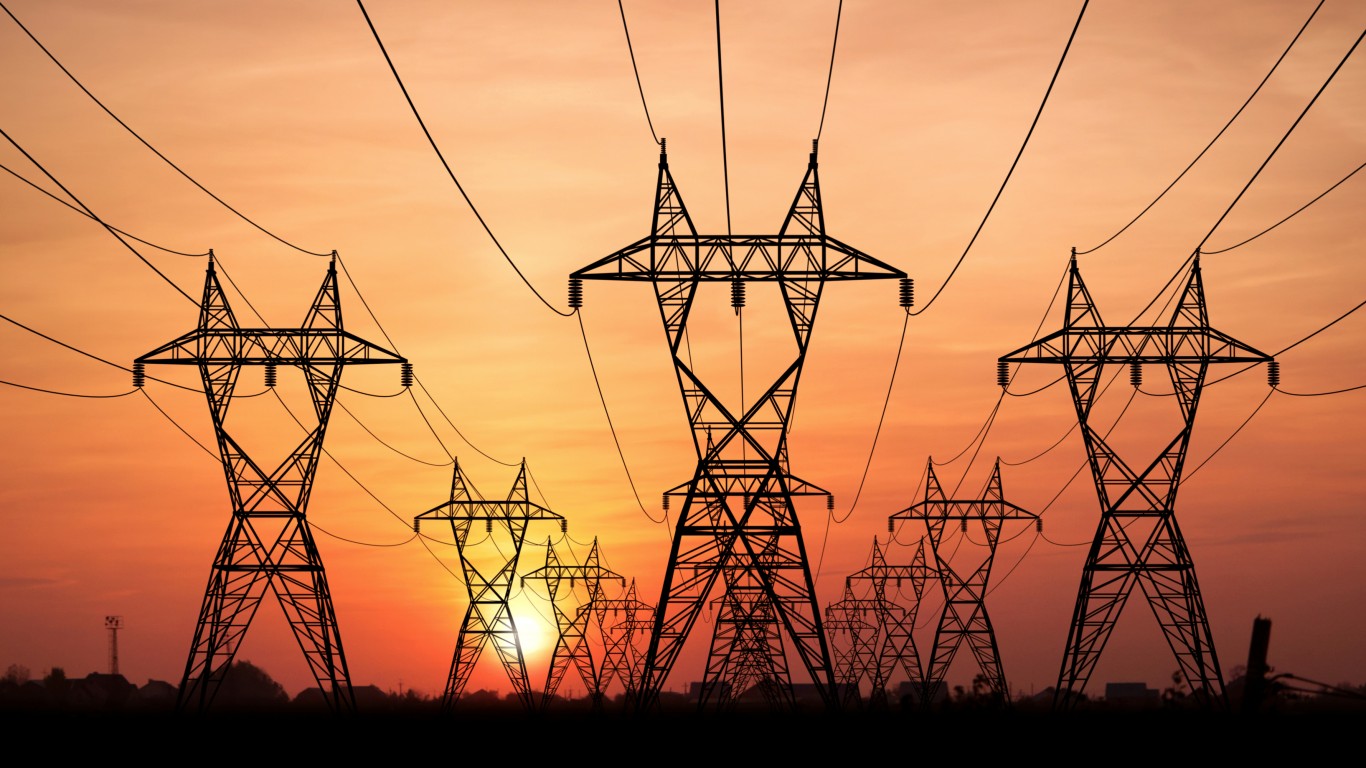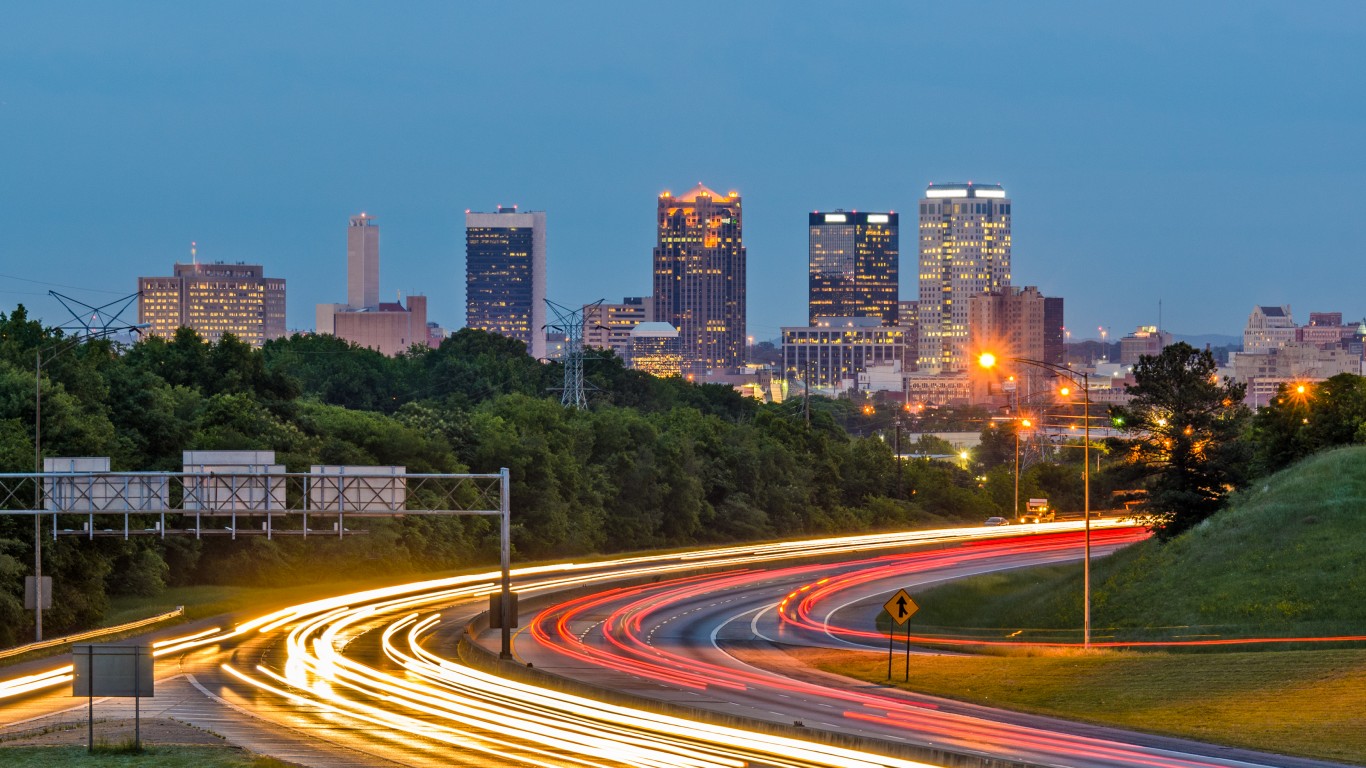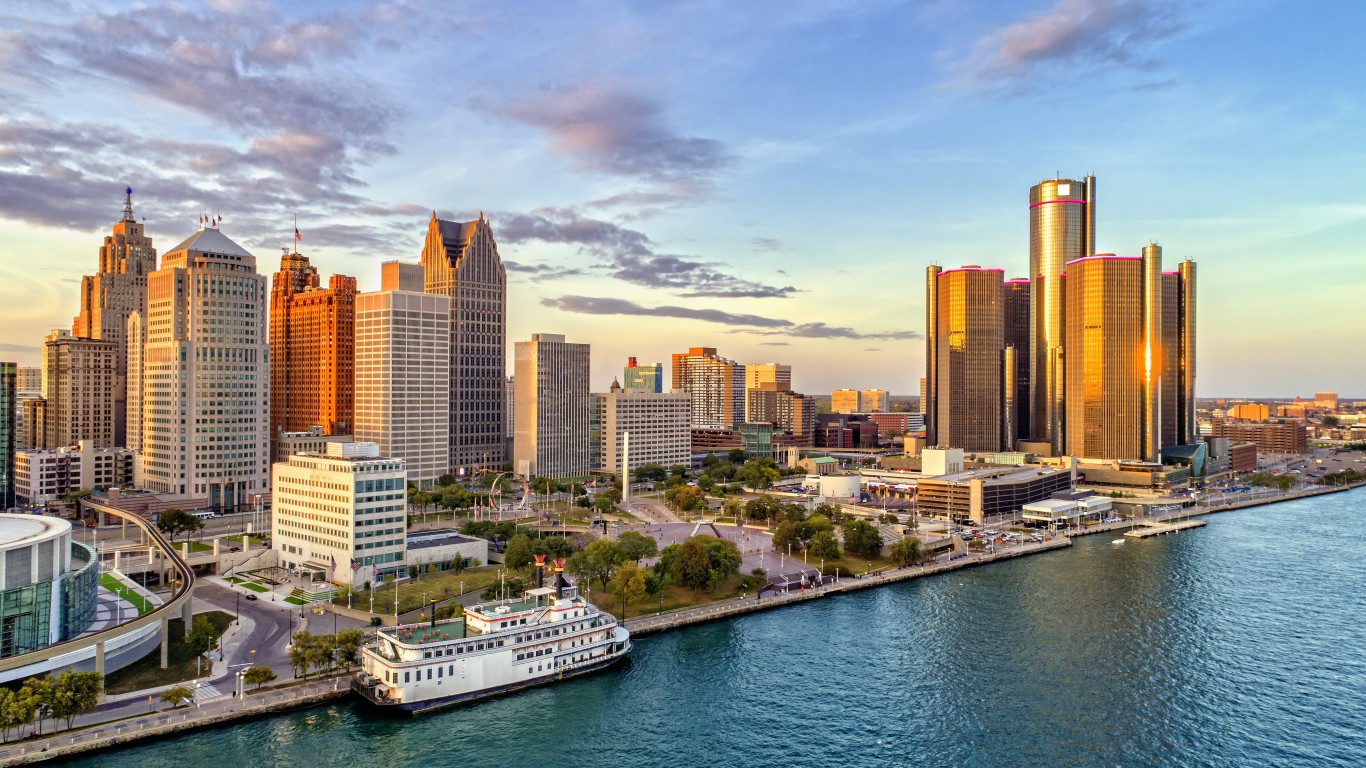Special Report
This Is the City Where People Have the Highest Energy Bills

Published:

The cost of energy around most of the world has started to soar. This is partly due to Russia’s attack on Ukraine, which has led some nations to boycott Russian oil, triggering a shortage of oil and gas. Russia is the world’s second-largest producer of crude. OPEC+ nations, which include Russia and Saudi Arabia, have to decide to keep output at planned levels rather than addressing potential shortages. As a result, crude prices spiked to over $110 a barrel, nearly double the level a year ago.
Meanwhile, retail electricity rates have already been rising. Considering the burden of energy bills on households, in Detroit, people have the highest energy bills relative to their incomes. (Interestingly, Michigan is not the state where people struggle to pay their energy bill. Rather, people in this state can’t pay their energy bills.)
The U.S. Energy Information Administration recently reported that last year, U.S. retail electricity prices “rose at the fastest rate since 2008.” Cold weather and supply interruptions were partially to blame. Thomas Nichols, an economist at Moody’s Analytic, commented: “It’s a period where we’re seeing a historic runup in prices.”
Realtor.com’s recently released Electric Shocks: The U.S. Cities Where People Are Spending the Most — and the Least — on Energy Bills ranks 50 large metro areas by their energy burden, using data from Greenlink Analytics. Data on incomes and energy costs used to calculate the energy burden is from 2018, the latest data available. Therefore, the report notes that energy burdens could be significantly higher today due to rising gas prices and inflation.
Typically, the energy burden per household is 3% to 4% of income, according to the Labor Department. A figure above 6% is considered a “heavy” energy burden. Above 10% is considered “severe.” (This is the most expensive city in every state.)
Realtor.com added the median home price per city. Cities with high home prices had the lowest burden, likely due partly to possible higher incomes in these cities. The lowest burden was in San Francisco, at 1.7%, against a median home price of $1.2 million in January. New York was second at 1.9%, against a median home price of $1.5 million.
The poorest large city in the country, Detroit, had the highest energy burden, with residents paying 7.2% of their income on utilities. This was against a median home price of $75,000. Detroit has a poverty level of 31%, and it has lost more than half its population since 1950 as large car companies have relocated elsewhere.
The authors of the study also noted that “because 80% percent of Detroit’s housing supply was built before 1960, homes here are less likely to be energy-efficient.”
Click here for the cities where people have the highest energy bills

10. Milwaukee, Wisconsin
> Annual median home price: $128,300
> Mean energy burden: 5.4%
[in-text-ad]

9. Indianapolis, Indiana
> Annual median home price: $145,200
> Mean energy burden: 5.5%

8. Kansas City, Missouri
> Annual median home price: $163,300
> Mean energy burden: 5.8%

7. Louisville, Kentucky
> Annual median home price: $165,400
> Mean energy burden: 5.8%
[in-text-ad-2]

6. Richmond, Virginia
> Annual median home price: $244,200
> Mean energy burden: 6.3%

5. Birmingham, Alabama
> Annual median home price: $97,500
> Mean energy burden: 6.4%
[in-text-ad]

4. Memphis, Tennessee
> Annual median home price: $107,100
> Mean energy burden: 6.6%

3. Philadelphia, Pennsylvania
> Annual median home price: $171,600
> Mean energy burden: 7.0%

2. New Orleans, Louisiana
> Annual median home price: $250,000
> Mean energy burden: 7.1%
[in-text-ad-2]

1. Detroit, Michigan
> Annual median home price: $52,700
> Mean energy burden: 7.2%
Want retirement to come a few years earlier than you’d planned? Or are you ready to retire now, but want an extra set of eyes on your finances?
Now you can speak with up to 3 financial experts in your area for FREE. By simply clicking here you can begin to match with financial professionals who can help you build your plan to retire early. And the best part? The first conversation with them is free.
Click here to match with up to 3 financial pros who would be excited to help you make financial decisions.
Have questions about retirement or personal finance? Email us at [email protected]!
By emailing your questions to 24/7 Wall St., you agree to have them published anonymously on a673b.bigscoots-temp.com.
By submitting your story, you understand and agree that we may use your story, or versions of it, in all media and platforms, including via third parties.
Thank you for reading! Have some feedback for us?
Contact the 24/7 Wall St. editorial team.